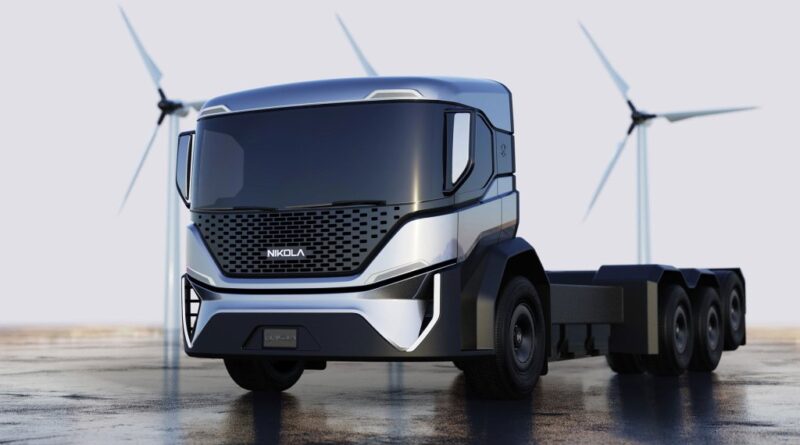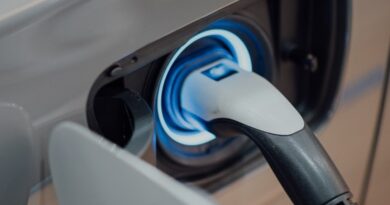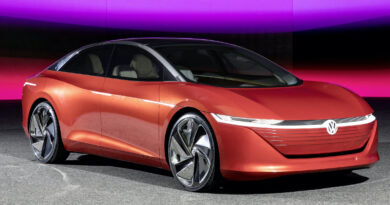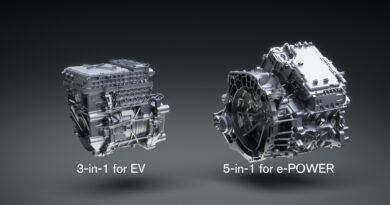Nikola secures order for 2500 electric garbage trucks
Australian waste management company moves to second phase of electric garbage truck trial as EV startup secures big order in the United States.
We’ve all had it. The garbage truck roars full throttle outside your bedroom window at 5.30am, then noisily pitches yesterday’s beer and wine bottles into its belly. Not a pleasant way to be woken and have your sleep-deprived headache confirmed.
While the noise of breaking glass on metal can’t be avoided, the truck’s diesel engine bark can. The future of garbage trucks – and other commercial vehicles – is quite obviously electric or hydrogen power due to their stop-start nature. To graphically illustrate, this week electric start-up brand Nikola secured an order from the USA’s Republic Services for 2500 battery-electric waste trucks.
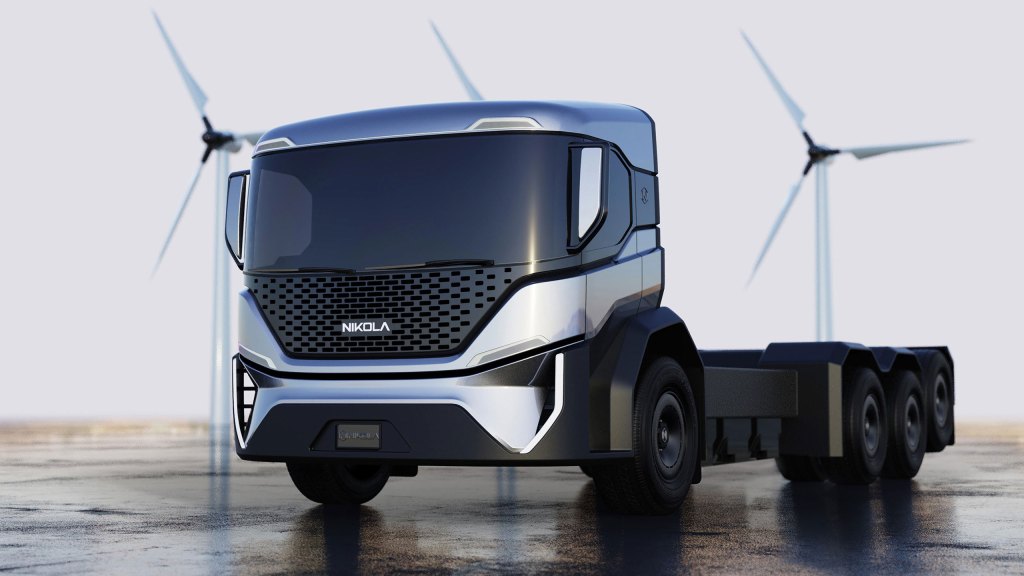
That’s the minimum order, with Republic Services – the nation’s second largest recycling and solid waste provider in the U.S. – having an option of up to 5000 electrified refuse trucks from Nikola. Full production deliveries are planned for 2023, with on-road testing set to begin in early 2022. A Nikola press statement claimed this to be the largest single order in the waste industry.
The order in line with Nikola’s plans to sell heavy commercial vehicles, including long-haul trucks. Chairman Trevor Milton sees commercial vehicles as a more profitable part of the EV space.
However, whereas Nikola’s focus on long-haul trucks is hydrogen fuel-cell tech – allowing for fast refuelling and a lot less weight in batteries – the garbage trucks will be pure battery electric vehicles, no doubt because they are not required to travel as far.
On Monday, as a result of the announcement, Nikola Motors’ share price jumped 22 percent.
This follows an earlier surge on June 29th this year when orders opened in the U.S. for its Badger pick-up truck, a vehicle apparently destined for Australia as the brand’s first export market. At that time, Nikola Motors was already worth some $US23 billion, despite not having produced and sold a vehicle.
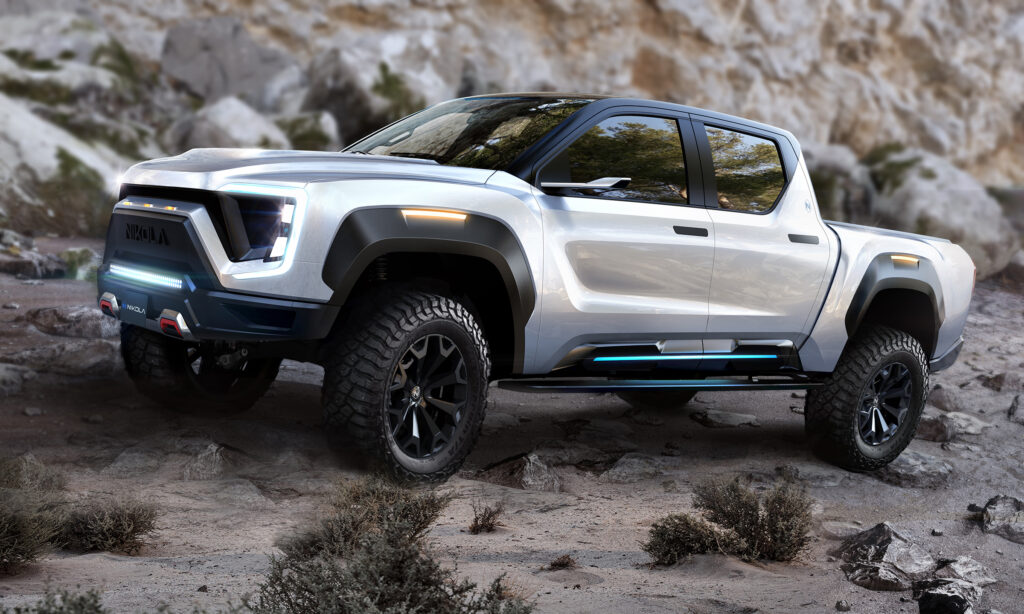
Back to that hangover wakeup, Nikola claims the result of this new electric fleet will result in “a much quieter and emissions-free refuse collection experience.”
The bin trucks – both automated side loaders and front-end loaders – will be based on Nikola’s Tre battery truck chassis, which Iveco will assemble in Ulm, Germany from late 2020.
“This is a game changer,” said Nikola CEO, Mark Russell. “Refuse truck customers have always ordered chassis from truck OEMs and bodies from other suppliers. Nikola has fully integrated the chassis and body, covering both with a single factory warranty.”
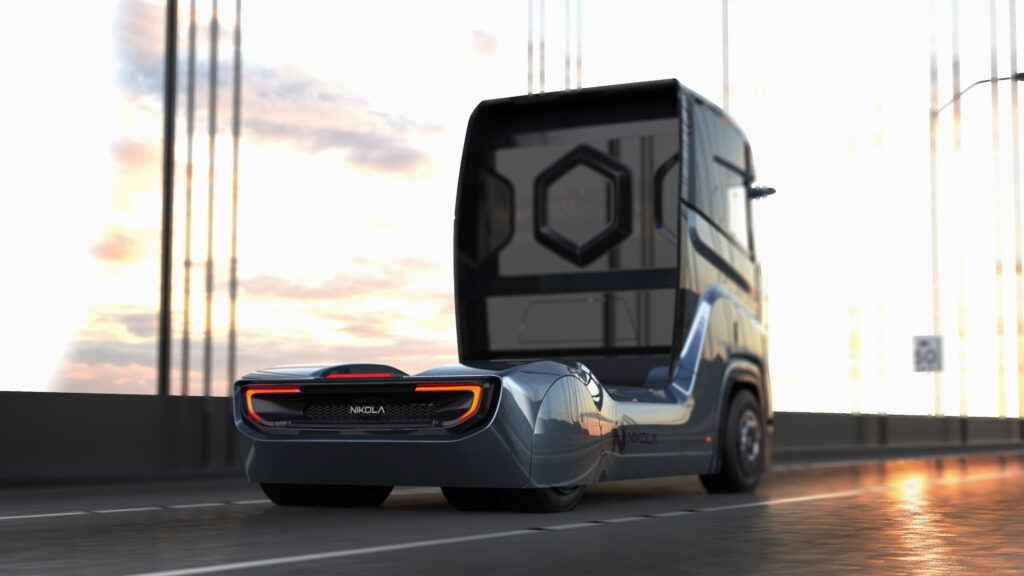
Specification details are limited at this stage, but Nikola says powertrain software will be limited to 1000HP (746kW) and “can give refuse trucks nearly three times the horsepower of natural gas and diesel options.” Clearly a benefit for getting up hills with a full load, and eliminating that familiar waste truck diesel noise you can hear a few suburbs away while trying to snooze.
Also suggested was an “industry-leading 720kWh of energy storage,” giving a range of up to 240 kilometres on a single charge as well as electrically lifting 1200 “cans” – or bins, as we’d call them.
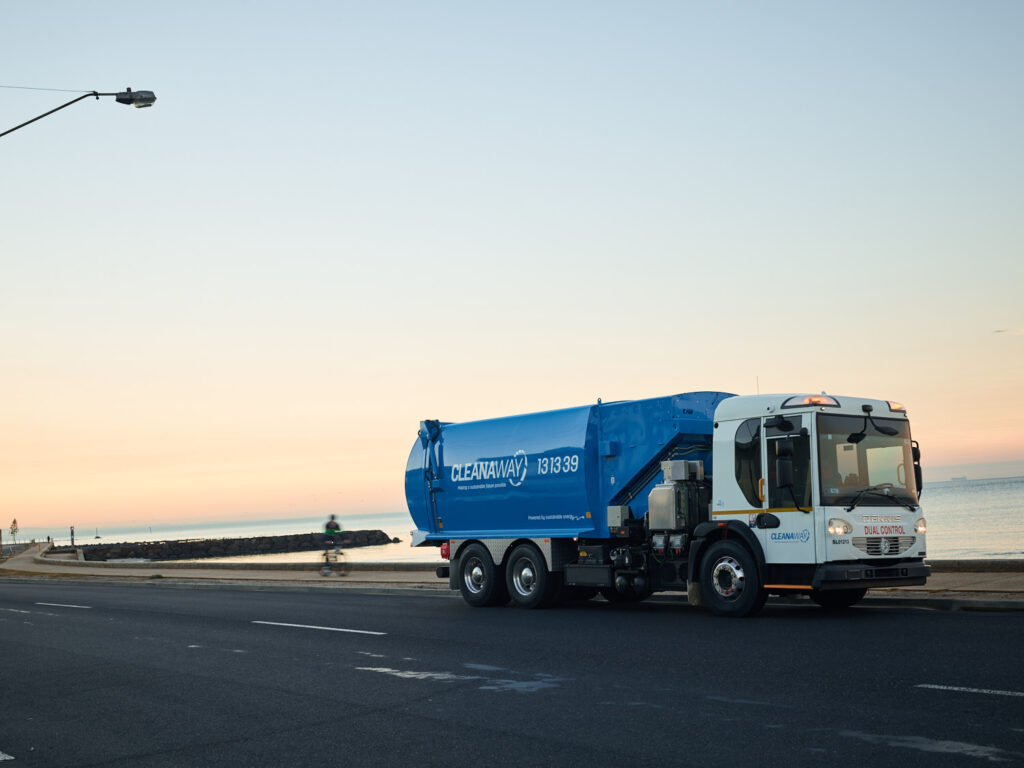
Closer to home, Australia’s leading total waste management company, Cleanaway Waste Management, has dipped its toe in the electric waste truck realm.
In early 2019 it began trials of fully electric waste trucks, servicing household collections in Hobsons Bay, Victoria. The trucks were not mass production, but commissioned by Cleanaway in conjunction with SEA Electric and Superior Pak, and assembled in Bundaberg.
In October 2019 it welcomed the first electric trucks to its WA fleet, stating each waster remover can “travel up to 120km and do a full run before it needs to be recharged. It also features a drive system that generates electricity when braking”.
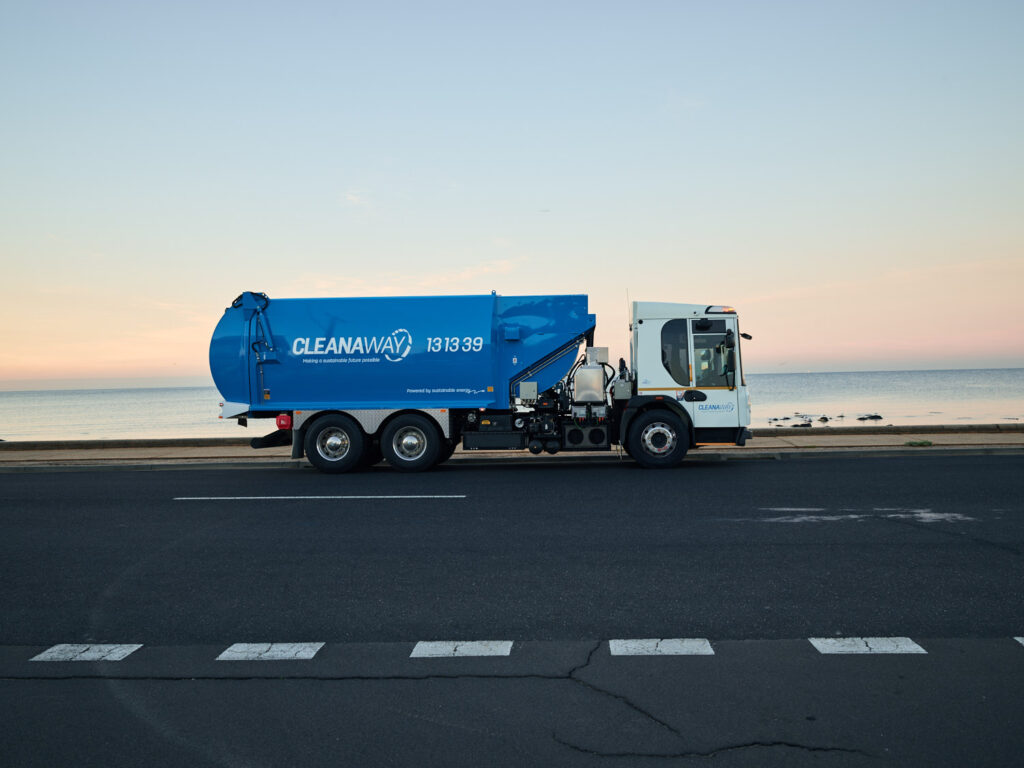
“With almost 5000 vehicles on the road each day servicing homes and businesses all over Australia, we are looking for ways to do that more sustainably,” said Cleanaway CEO and Managing Director, Vik Bansal.
A spokesman also said the first electric waste truck trials in the City of Sydney went well, and “it was discovered one is preferred over the other and we are undertaking a second trial”.
Our waste may remain dirty, but the way it’s carted away looks set to become dramatically cleaner in coming years.

